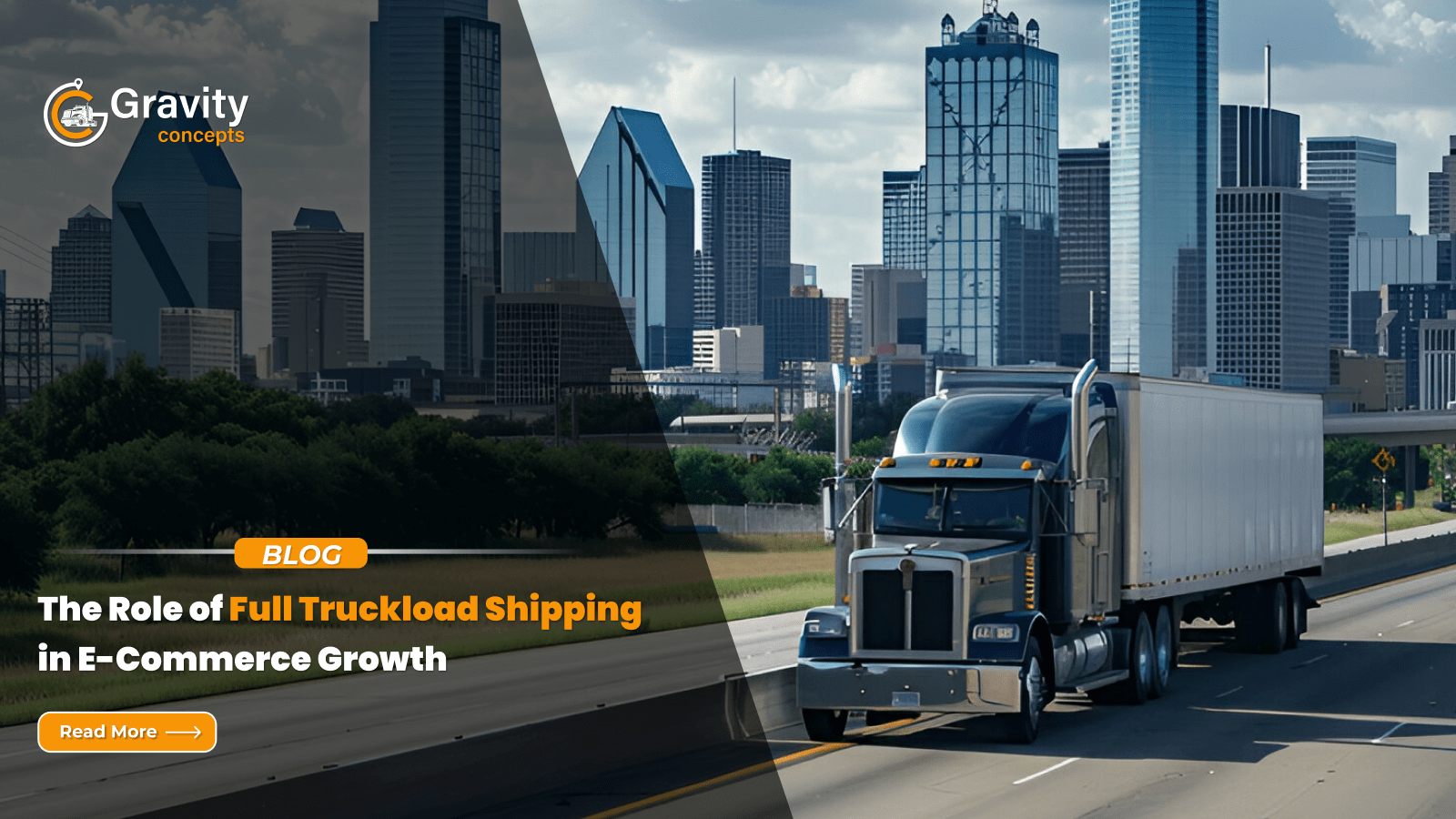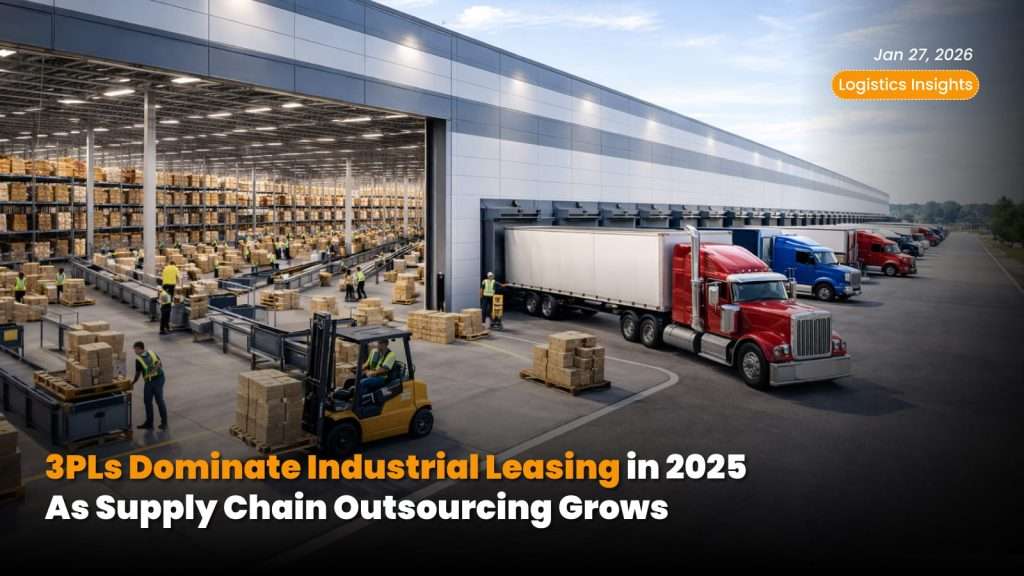
The Role of Full Truckload Shipping in E-Commerce Growth
The e-commerce industry is expanding rapidly, and with it comes the challenge of managing high-volume shipments efficiently. Consumers expect fast, reliable, and cost-effective deliveries, and businesses must streamline their logistics to meet these growing demands.
One of the most effective solutions for handling large shipments is Full Truckload (FTL) shipping. Unlike Less-Than-Truckload (LTL) shipping, which involves multiple shipments sharing a single truck, FTL dedicates an entire truck to one business’s cargo. This minimizes handling, reduces transit times, and enhances security—all crucial factors in supporting e-commerce growth.
In this blog, we’ll explore how FTL shipping helps e-commerce businesses scale efficiently, optimize logistics, and improve customer satisfaction.
The Rise of E-Commerce and Its Logistics Challenges
E-commerce businesses face unique logistical challenges, especially as online shopping demand continues to rise. Some of the key hurdles include:
- High Order Volumes – Businesses must move large quantities of products quickly and efficiently.
- Fast Delivery Expectations – Customers expect same-day or next-day delivery, requiring optimized logistics.
- Supply Chain Coordination – Managing warehousing, order fulfillment, and transportation seamlessly is critical.
- Shipping Costs – The need for cost-effective freight solutions without sacrificing speed and reliability.
With these challenges in mind, businesses must adopt efficient freight solutions to maintain a competitive edge and meet consumer expectations—this is where FTL shipping proves invaluable.
Why Full Truckload Shipping is Essential for E-Commerce
FTL shipping plays a vital role in helping e-commerce businesses scale their logistics. Here’s how:
- Scalability – As order volumes increase, FTL enables businesses to move larger shipments without relying on multiple smaller ones.
- Faster Transit Times – Since FTL shipments move directly from pickup to delivery, they reach their destination faster compared to multi-stop shipping methods.
- Lower Risk of Damage – With less handling and fewer transit points, the chances of cargo damage or misplacement are significantly reduced.
- Improved Inventory Flow – Businesses can maintain steady stock levels by scheduling regular FTL shipments, avoiding supply chain disruptions.
Cost-Effective Logistics for Online Retailers
FTL shipping is often perceived as expensive, but for businesses shipping high volumes, it can actually be more cost-efficient.
- Better Cost per Unit – Since FTL pricing is for the entire truck, businesses moving bulk orders often pay less per unit compared to multiple smaller shipments.
- Reduced Warehousing Costs – Faster transit times mean businesses don’t have to hold excessive inventory in warehouses, cutting storage costs.
- No Hidden Fees – Unlike LTL shipments that may incur handling and storage fees at multiple hubs, FTL freight services avoid these additional costs.
For online retailers that regularly ship large quantities, FTL offers greater cost savings and efficiency in the long run.
Supporting Faster Delivery Models (Same-Day & Next-Day Shipping)
With consumer expectations for fast shipping at an all-time high, businesses must adopt logistics solutions that support quick and efficient deliveries.
Direct Shipments – FTL moves products directly from warehouses to fulfillment centers or distribution hubs, reducing transit time.
On-Time Deliveries – Unlike LTL, which involves multiple stops and potential delays, FTL ensures that orders arrive as scheduled.
Broader Market Reach – Businesses can expand their shipping network and optimize deliveries to various regions using FTL for large shipments.
By integrating FTL shipping into their logistics strategy, e-commerce businesses can meet fast delivery expectations and enhance customer satisfaction.
Enhancing Supply Chain Efficiency for E-Commerce Sellers
A strong supply chain is essential for maintaining efficiency, and FTL shipping helps businesses reduce delays, optimize inventory management, and control costs.
✔ Streamlined Operations – FTL minimizes disruptions in the supply chain by moving products directly to their destination.
✔ Better Demand Planning – Businesses can schedule bulk shipments at regular intervals to keep up with seasonal demand or high sales periods.
✔ Cost Predictability – FTL provides fixed pricing structures, making budgeting and logistics planning easier.
For businesses looking to enhance their supply chain while reducing logistics challenges, FTL is a smart and strategic choice.
Conclusion
E-commerce businesses need reliable, scalable, and cost-effective shipping solutions to thrive in today’s competitive landscape. Full truckload shipping has become an essential part of e-commerce logistics, offering:
- Faster, more reliable deliveries
- Lower risk of freight damage
- Cost savings for bulk shipments
- Stronger supply chain efficiency
For online retailers moving high-volume freight, FTL shipping is the key to reducing costs, improving speed, and meeting customer expectations.



